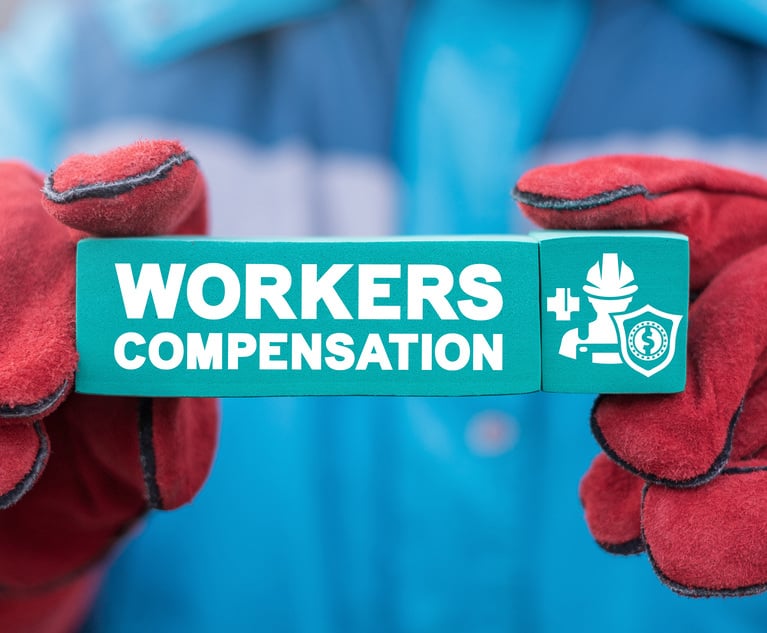N.Y. Surplus Lines Brokers Challenge Dept. On TRIARegs Pearl River, N.Y.
|Facing a new regulation they believe is a threat to thefoundation of their business, New Yorks surplus lines brokers saytheir only alternative may be to take the states insuranceregulator to court.
|“Its really a last resort and not a step were eager to take,”Dan Maher, executive director of the Excess Line Association of NewYork, told National Underwriter.
|Indeed, to Mr. Maher, it was even regrettable that a reporterwas in attendance to record remarks he delivered at the midyearconference of the Professional Insurance Wholesalers Association ofNew York State.
|During the legislative and regulatory update session of theconference program, he reported on a regulation released by the NewYork insurance department last month, relating to the earning ofterrorism insurance coverage premiums. Seen from the perspective ofPIWAs membership, the new rule is an attack on “freedom of rate andform”–the cornerstone of E&S business–in disguise.
|In March, the department put out two emergency amendments–one toRegulation 57, which implements the rating law (Article 23 of theinsurance law), and one to Regulation 41, which sets forth rulesgoverning excess lines placements, Mr. Maher explained.
|Regulation 57 was amended to say that TRIA premiums (terrorismpremiums written in accordance with the federal Terrorism RiskInsurance Act) must be “prorated.” The amendment to Reg 41 saysthat “no excess line broker shall procure insurance from an excessline insurer unless that insurer consents” to proration.
|Essentially, what the Reg 57 amendment means is that when apolicy is cancelled, the premium refunded to the insured iscalculated on a daily pro rata basis, according to the language ofthe amendment.
|“It had come to our attention that some insurers participatingin TRIA were issuing policies containing cancellation provisionsthat provide that premiums are fully earned” upon policy issuance,said Joanna Rose, a representative for the department.
|“Treating premiums as fully earned upon policy issuance,” whichwould mean no premium returned to the insured in the event ofcancellation, “violates fundamental insurance premium recognitionrules, which generally provide that a policy premium is earnedevenly over the entire policy period,” the department said in astatement posted on its Web site explaining reasons for theamendment.
|“This treatment of unearned premiums unjustly enriches suchinsurers and is contrary to TRIAs goal of making coverage moreaffordable,” the department said.
|With “wide fluctuations” in TRIA premiums out in themarketplace, the department wanted to make sure that businessescould continue to shop for the best deal without facing a penalty,Ms. Rose said.
|While Mr. Maher suggested that what actually prompted the rulewas a situation in which New York City real estate interests wereunable to cancel stand-alone terrorism policies that they boughtprior to TRIAs enactment to take advantage of lower TRIA premiums,he said that for insurers, the Reg 57 amendment is a non-issue.
|“Most carriers yawned about that,” he said. “No insurer said, Iwant to fully earn TRIA. Thats essential to my book of business,”he added.
|But what they didnt yawn about was the amendment to Reg 41,which “sets an awful precedent” in his view and that of a broadindustry coalition, he reported. “Its a backdoor approach to defacto partial rate regulationof the non-admitted market,” hesaid.
|He explained that New Yorks rating law (Article 23) and thestates cancellation law for commercial policies each have specificexemptions for excess lines.
|“When an insurance department issues a regulation, its supposedto be pursuant to authority granted by statutes,” he continued. Theeffect of the Reg 41 amendment is to allow the department to doindirectly “what it cannot do directlyregulate rating fornon-admitted carriers.”
|The department, he said, is gaining this indirect power “byprohibiting the licensee, the excess line broker, from doingbusiness with the carriers that dont expect to abide by thesestatutes that dont apply to them.”
|“Taken to its logical conclusion, any statute that doesnt applyto excess lines insurers can be swept into this model by forcing itthrough the excess line broker, who cannot deal with carriers thatdont consent,” he added.
|“We always had the authority to regulate excess and surpluslines brokers,” Ms. Rose told National Underwriter. “Andthey had the obligation to prorate the premiums prior to theregulation, anyway.”
|The document on the departments Web site explaining the need forthe two amendments notes that an “alternative considered was tomake these amendments applicable only to authorized insurers.”This, however, “would result in an unlevel playing field betweenauthorized insurers and excess line insurers,” the documentcontinued.
|Mr. Maher said that PIWA and ELANY are members of a coalition ofindustry trade groups and insurers that are seeking to presenttheir case to the department in opposition to the amendment and totry to hammer out some sort of compromise. He reported, however,that the department “unilaterally” cancelled a meeting to discussthe issue.
|While Ms. Rose had no information or comment on the meetingcancellation, asked if there was any room for compromise, she said,“I dont believe so.”
|At the PIWA meeting, Mr. Maher said: “What we are intending todo is tell them that the freedom of rate is so fundamental to ourbusiness that either we have to find a way to compromise [or]barring that, were going to have to proceed in court,” challengingthe authority of the department to put out the amendment.
|Mr. Maher began his remarks by noting that PIWA and ELANY hadforged a good working relationship with the department in the lastdecade. “A lot of positive things have occurred,” he said.
|“These [emergency] amendments to the regulations really appearto be a throwback to the old days when the insurance departmentwould play hardball, particularly with the excess lines industry,”he said.
|He added that ELANY and PIWA are two groups that want to doeverything possible to “maintain that positive working relationship[T]he last thing I want [is] to fuel or fan a fire” in the tradepress “that suggests the industry is [staging an] uprising.”
Reproduced from National Underwriter Edition, May 19, 2003.Copyright 2003 by The National Underwriter Company in the serialpublication. All rights reserved. Copyright in this article as anindependent work may be held by the author.
Want to continue reading?
Become a Free PropertyCasualty360 Digital Reader
Your access to unlimited PropertyCasualty360 content isn’t changing.
Once you are an ALM digital member, you’ll receive:
- All PropertyCasualty360.com news coverage, best practices, and in-depth analysis.
- Educational webcasts, resources from industry leaders, and informative newsletters.
- Other award-winning websites including BenefitsPRO.com and ThinkAdvisor.com.
Already have an account? Sign In
© 2024 ALM Global, LLC, All Rights Reserved. Request academic re-use from www.copyright.com. All other uses, submit a request to [email protected]. For more information visit Asset & Logo Licensing.








